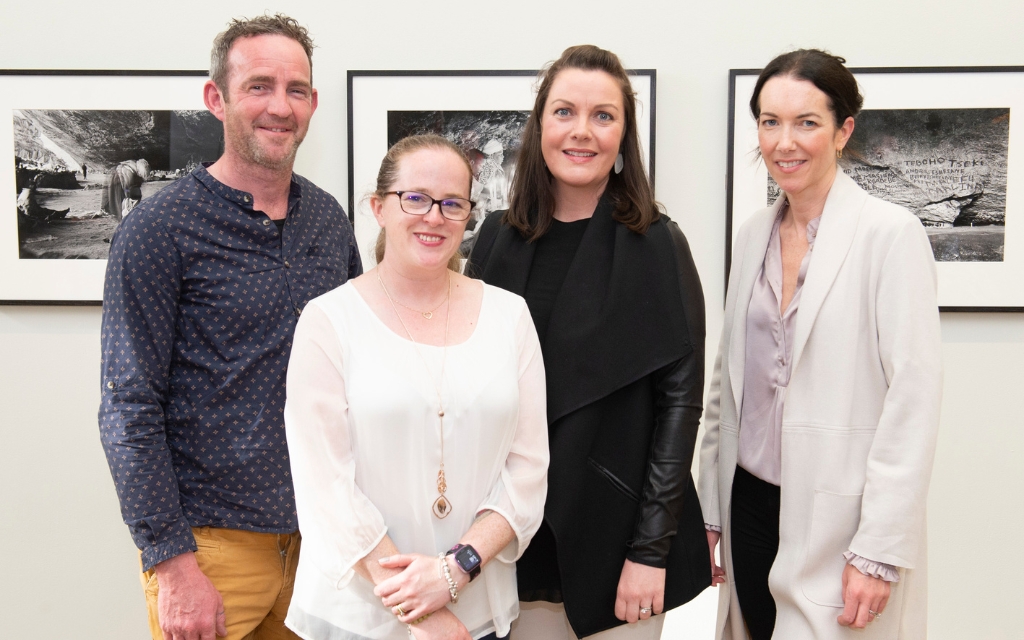Patient and public involvement
What does patient and public involvement mean?
Patient and public involvement in research means that members of the public work alongside the research team and are actively involved in the research process as advisers and possibly as researchers. Members of the public can include people with lived experience of a condition, patients, carers, families, service users, or those with a more general interest in the area of the research.
Why is patient and public involvement important?
Your voice can create change.
People who have experienced the loss of a pregnancy or the death of their baby and/or members of the public can provide researchers and clinicians with insights which they might not have otherwise. These insights can help to make research more relevant to the needs of people who experience pregnancy loss and their families. This can help to bridge the gap between research and practice, advocating for policies, supports and service improvements that will make a difference.
How are people with lived experience of pregnancy or baby loss involved in activities of the Pregnancy Loss Research Group?
At the Pregnancy Loss Research Group, we work alongside people with lived experience of pregnancy and baby loss across all of our activities. Members of the public can become involved in all stages of the research process including deciding on what research is conducted, and how, as well as helping to share the findings of the research.
People with lived experience of pregnancy loss are members of the overall Pregnancy Loss Research Group and/or join specific projects. They are involved in:
- Contributing to research proposals across a variety of topics relating to pregnancy loss.
- Advising on the conduct and reporting of research projects
- Reviewing documentation
- Organising and participating in conferences and events, e.g. ISA Cork 2017, National Bereavement Forums.
- Discussions of relevant pregnancy-loss related updates and developments, locally and nationally, e.g. clinical guidelines, policies, education programmes, bereavement standards.
Some examples of publications co-authored by people with lived experience include:
- Hennessy M, Dennehy R, Matvienko-Sikar K, O’Sullivan-Lago R, Ui Dhubhgain J, Lucey C, O’Donoghue K. Views of knowledge users on recurrent miscarriage services and supports in the Republic of Ireland: a qualitative interview study. BMJ Open. 2025;15:e094753. https://doi.org/10.1136/bmjopen-2024-094753.
- Hennessy M, Dennehy R, O'Leary H, O'Donoghue K, RE:CURRENT Research Advisory Group. Involving knowledge users in health services research: Collective reflections and learning from a national evaluation of recurrent miscarriage services. Health Expectations. 2024;27: e70125. https://doi.org/10.1111/hex.70125.
- Dennehy R, Hennessy M, Ui Dhubhgain J, Lucey C, O′Donoghue K. ‘An extra level of kind of torment’: views and experiences of recurrent miscarriage care during the initial phases of COVID-19 in Ireland—a qualitative interview study. Health Expectations. 2023;26(4):1768-1782. https://doi.org/10.1111/hex.13791.
- Hennessy M, Dennehy R, Meaney S, Linehan L, Devane D, Rice R, O'Donoghue K. Clinical practice guidelines for recurrent miscarriage in high-income countries: A systematic review. Reproductive BioMedicine Online. 2021;42(6):1146-1171. https://www.rbmojournal.com/article/sS1472-6483(21)00100-0/fulltext.
Members of the public are part of an engaged and diverse group of professionals, clinicians and researchers committed to pregnancy loss research and care, and are supported in their involvement by the team.
Would you like to get involved in our work?
If you would like to get involved in our work, take a look through our website to learn a little more about what we do. You might read about particular topics, projects or activities that interest you.
You can contact us by emailing pregnancyloss@ucc.ie to explore opportunities.
Want to find out more about public and patient involvement in research?
There are many valuable resources that have been developed to support people who would like to understand more about getting involved in research. These organisations are a good place to start:
- The PPI IGNITE Network: This network brings together a diverse range of stakeholders nationally and internationally to build a shared voice for PPI in research in Ireland. The national office connects and communicates, supports and signposts, key contributions to the development and growth of an energetic, collaborative and innovative network. See also The PPI IGNITE Network @ UCC
- Health Service Executive Research and Development: Patient and Public Involvement
- INVOLVE UK: The UK’s leading public participation charity. INVOLVE develops, supports and campaigns for new ways to involve people in decisions that affect their lives
- International Stillbirth Alliance Parent Voices Initiative
- Stillbirth Centre of Research Excellence, Australia | Getting Involved in Stillbirth Research; A guide for bereaved parents.



